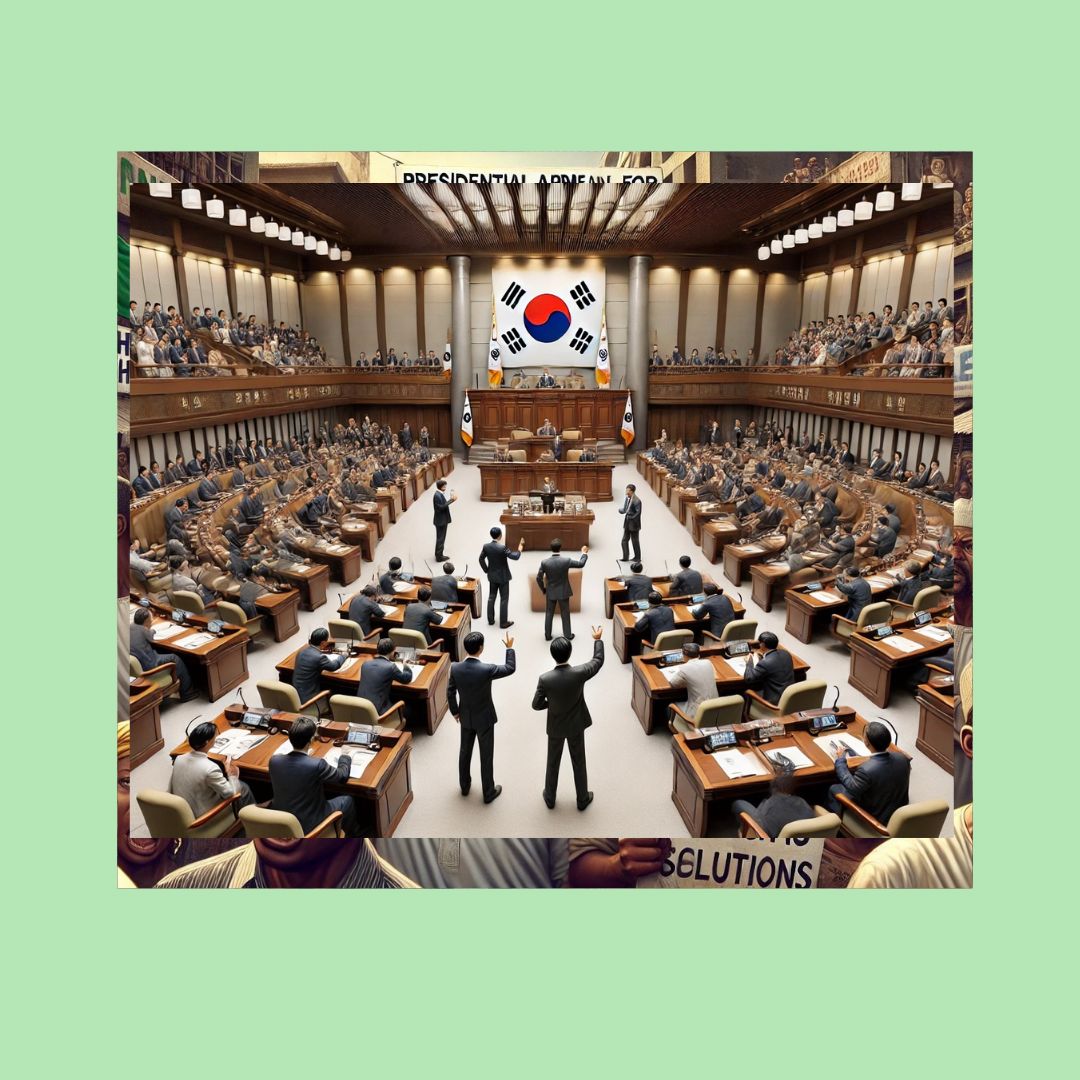South Korean lawmakers have voted to impeach President Yoon Suk Yeol after his failed martial law attempt. Yeol’s martial law declaration sparked massive protests across the country, leading to an impeachment motion.
Members of Yeol’s own People Power Party (PPP) joined the opposition in voting for his impeachment.
The decision now needs to be ratified by the constitutional court, which has 180 days to rule.
Protests erupted outside the National Assembly as thousands of anti-Yoon demonstrators celebrated the impeachment motion’s success.
“I will never give up,” Yeol said defiantly, describing the impeachment as a temporary pause in his presidency. He vowed to “do my best for the country until the end,” despite the growing opposition.
Yoon’s apology earlier this month sharply contrasted with his current refusal to step down after the failed martial law.
His martial law declaration came after months of political deadlock, citing supposed North Korean threats to his government. However, the declaration lasted only hours before the National Assembly overturned it, with 190 MPs rejecting it.
Three-quarters of South Koreans supported his impeachment, with public pressure forcing the PPP to allow a vote. On Saturday, the impeachment motion reached the two-thirds threshold needed to pass, with 204 votes in favour.
National Assembly Speaker, Woo Won-shik, a member of the opposition, celebrated the victory for democracy. “To the people, we hope your year-end celebrations can now be restored,” Woo said after announcing the result. Woo, from the Democratic Party, emphasized that South Korea’s future was in the hands of its people.
Divided reactions to failed martial law
Yeol’s failed martial law declaration set off nearly two weeks of chaos and uncertainty in South Korea.
He had cited North Korean threats and domestic “anti-state forces” as justification for imposing military rule.
However, it quickly became clear that his move was motivated by domestic political struggles, not external threats. The martial law order was overturned by the National Assembly. Yeol later apologized but defended his actions. His approval rating plummeted to a record low of 11%, according to a Gallup Korea poll.
On Saturday, the opposition successfully gathered the necessary votes, with support from 12 PPP members.
“It was a victory for democracy,” said Sim Hee-seon, an anti-Yoon protester. “The fight is not over yet.”
Protesters outside the National Assembly cheered and celebrated, waving signs and singing as fireworks filled the sky. Meanwhile, supporters of Yoon in Gwanghwamun Square reacted with anger and frustration at the impeachment vote’s outcome.Many in the pro-Yoon rally remained silent, while others muttered insults before leaving the scene.
In the National Assembly, PPP lawmakers held a long meeting to discuss their stance on the impeachment motion. Eventually, 12 PPP members crossed the floor, supporting the impeachment motion to pass with 204 votes. Despite internal divisions, 85 PPP lawmakers voted against impeachment, showing the party’s split over Yoon’s actions.
A history of impeachment: Yeol’s Legacy compared to Park Geun-hye
Impeaching a sitting president is not new to South Korea, which ousted President Park Geun-hye in 2016.
Yeol had led the investigation into Park, which eventually led to her impeachment and removal from office.
Now, Yeol faces his own impeachment over the failed martial law, a crisis of his own making. “We’ll keep watching,” Sim Hee-seon, a protester, said. “The court’s judgment will decide whether this fight ends.”
Yoon’s supporters remain defiant, arguing that he was only trying to protect the country from potential threats. Meanwhile, opposition lawmakers have vowed to ensure that Yeol faces the full consequences of his actions.
South Korea faces a critical decision
Yeol’s failed martial law attempt has plunged South Korea into political chaos and uncertainty.
The constitutional court has 180 days to decide whether Yeol’s impeachment will stand, triggering a new election.If the court upholds the impeachment, a new presidential election must be held within 60 days.
Meanwhile, Prime Minister Han Duck-soo has taken over as acting president, focusing on stabilizing the country. Han’s task is to restore normalcy for the people, even as he faces his own legal troubles.
Both Han and Finance Minister Choi Sang-mok are involved in an ongoing police probe over last week’s events.
As acting president, Han has pledged to guide South Korea through this turbulent period of political unrest. However, South Koreans anxiously wait to see whether the court will remove Yeol permanently removed from office.

Leave feedback about this